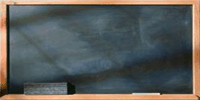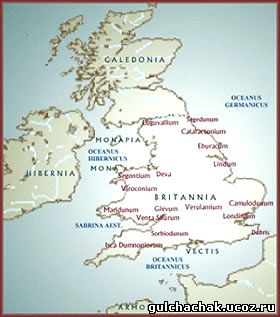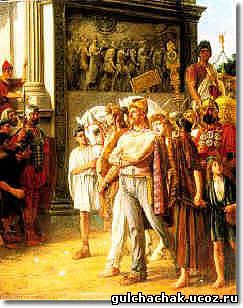|
Материал из сайта http://www.englishforkids.ru/Dickens1.shtml Charles Dickens. A Child's History of England.
|
|
|
Chapter 1. IF you look at
a Map of the World, you will see, in the left-hand upper corner of the
Eastern Hemisphere, two Islands lying in the sea. They are England and
Scotland, and Ireland. England and Scotland form the greater part of these
Islands. Ireland is the next in size. The little neighbouring islands, which
are so small upon the Map as to be mere dots, are chiefly little bits of
Scotland, - broken off, I dare say, in the course of a great length of time,
by the power of the restless water. |
Глава 1.
|
|
In the old
days, long ago, the sea roared round them, just as it roars now. But the sea
was not alive, then, with great ships and brave sailors, sailing to and from
all parts of the world. The winds and waves brought no adventurers to the
islands, and the savage Islanders knew nothing of the rest of the world, and
the rest of the world knew nothing of them. |
В давние времена море ревело вокруг этих островов
точно так же, как и сейчас. Но тогда его не бороздили большие корабли из всех
частей света. Ветры и волны не заносили сюда искателей приключений, и дикие
островитяне ничего не знали об остальном мире, а остальной мир ничего не знал
о них. |
|
It is supposed
that the Phoenicians came in ships to these Islands, and found that they
produced tin and lead- both very useful things, produced upon the sea-coast.
The most celebrated tin mines in Cornwall are, still, close to the sea. One
of them is hollowed out underneath the ocean; and the miners say, that in
stormy weather they can hear the noise of the waves thundering above their
heads. |
Считают, что первыми к островам приплыли древние
финикийцы; сошли на берег и обнаружили, что на побережье добываются олово и
свинец- металлы весьма полезные. Оловянные рудники Корнуолла и сейчас
находятся недалеко от океана, а одна из шахт- прямо под дном морским, и
рудокопы говорят, что в бурю они слышат грохот волн над своей головой. |
|
The
Phoenicians traded with the Islanders for these metals, and gave the
Islanders some other things in exchange. The Islanders were poor savages,
going almost naked, or only dressed in the rough skins of beasts. But the
Phoenicians, sailing over to the opposite coasts of France and Belgium, and
saying to the people there, 'We have been to those white cliffs across the
water, which you can see in fine weather, and from that country, which is
called BRITAIN, we bring this tin and lead,' tempted some of the French and
Belgians to come over also. These people settled themselves on the south
coast of England, which is now called Kent; and, although they were a rough
people too, they taught the savage Britons some useful arts, and improved
that part of the Islands. It is probable that other people came over from
Spain to Ireland, and settled there. Thus strangers became mixed with the
Islanders, and the savage Britons grew into a wild, bold people; almost
savage, still, but hardy, brave and strong. |
Финикийцы начали торговать с островитянами-
обменивать свои товары на олово и свинец. Островитяне были бедными дикарями-
ходили они почти нагими или в невыделанных звериных шкурах. Финикийцы,
возвращаясь к берегам нынешней Франции и Бельгии, рассказывали тамошним
жителям: |
|
The whole
country was covered with forests and swamps. The greater part of it was misty
and cold. There were no roads, bridges, streets nor houses. A town was only a
collection of straw-covered huts, hidden in a thick wood, with a ditch all
round, and a low wall, made of mud, or the trunks of trees placed one upon
another. The people planted little or no corn, but lived upon the flesh of
their flocks and cattle. They made no coins, but used metal rings for money.
They were clever in basket-work, and they could make a coarse kind of cloth,
and some very bad earthenware. But in building fortresses they were much more
clever. They made boats of basket-work, covered with the skins of animals,
but seldom, if ever, ventured far from the shore. |
Страну покрывали леса и болота, большая ее часть
была туманна и холодна. Не было ни дорог, ни мостов, ни городских улиц, ни
домов. В лесах ютились маленькие селения из крытых соломой хижин, окруженные
рвом и невысокой глинобитной стеной или бревенчатой оградой. |
|
They made
swords, of copper mixed with tin, but, these swords were so soft that a heavy
blow would bend one. They made light shields, short pointed daggers, and
spears - which they jerked back after they had thrown them at an enemy, by a
long strip of leather fastened to the stem. The butt-end was a rattle, to
frighten an enemy's horse. The ancient Britons, being divided into as many as
thirty or forty tribes, each commanded by its own little king, were
constantly fighting with one another, and they always fought with these
weapons. |
Из сплава меди и олова бритты изготавливали мечи, но
довольно мягкие- от сильных ударов они гнулись. Изготавливали бритты легкие
щиты и короткие заостренные кинжалы, а также дротики, к которым привязывались
длинные ремешки: метнув дротик во врага, воин за ремешок выдергивал его и
вновь метал. Толстый конец дротика снабжался погремушкой, чтобы пугать
вражеских лошадей. |
|
They were very
fond of horses. The standard of Kent was the picture of a white horse. They
could break them in and manage them wonderfully well. Indeed, the horses,
though they were rather small, were so well taught in those days, that they
can scarcely be said to have improved since; though the men are so much
wiser. They obeyed every command; and would stand still by themselves, in all
the din and noise of battle, while their masters went to fight on foot. The
Britons could not have succeeded in their most remarkable art, without the
aid of these sensible and trusty animals. The art I mean, is the construction
and management of war-chariots or cars, for which they have ever been
celebrated in history. Each of the best sort of these chariots, not quite
breast high in front, and open at the back, contained one man to drive, and
two or three others to fight - all standing up. The horses who drew them were
so well trained, that they would tear, at full gallop, over the most stony
ways, and even through the woods; dashing down their masters' enemies beneath
their hoofs, and cutting them to pieces with the blades of swords, or
scythes, which were fastened to the wheels, and stretched out beyond the car
on each side, for that cruel purpose. In a moment, while at full speed, the
horses would stop, at the driver's command. The men within would leap out,
deal blows about them with their swords, leap on the horses, on the pole,
spring back into the chariots anyhow; and, as soon as they were safe, the
horses tore away again. |
Бритты очень любили лошадей. Гербом Кента было изображение
белой лошади.Они прекрасно объезжали лошадей и умели с ними обращаться. Их
низкорослые лошади в те времена были так превосходно обучены, что вряд ли
чем-нибудь усатупили бы нынешним, хотя люди с тех пор и стали значительно
умнее. |
|
The Britons
had a strange and terrible religion, called the Religion of the Druids. It
seems to have been brought over, in very early times, from the opposite
country of France, anciently called Gaul, and to have mixed up the worship of
the Serpent, and of the Sun and Moon, with the worship of some of the Heathen
Gods and Goddesses. Its ceremonies were kept secret by the priests, the
Druids, who pretended to be enchanters.Their ceremonies included the
sacrifice of human victims, the torture of some suspected criminals, and, on
occasions the burning alive, in immense wicker cages, of a number of men and
animals together. The Druid Priests had some kind of veneration for the Oak.
They met in dark woods, which they called Sacred Groves; and there they
instructed, in their mysterious arts, young men who came to them as pupils. |
У бриттов была странная религия, называемвя религией
друидов. Видимо, ее занесли на остров в еще более давние времена с берегов
Франции, и она смешалась с местными верованиями- к поклонению Змею, Солнцу и
Луне добавилось поклонение другим языческим богам и богиням. |
|
These Druids
built great Temples and altars, open to the sky, fragments of some of which
are yet remaining. Stonehenge is the most extraordinary of these. Three
curious stones in Kent form another. We know, from examination of the great
blocks,that they could not have been raised without the aid of some ingenious
machines, which are common now, but which the ancient Britons certainly did
not use. I should not wonder if the Druids kept the people out of sight while
they made these buildings, and then pretended that they built them by magic. |
Друиды строили огромные алтари под открытым небом-
остатки некоторых сохранились до сих пор. Наиболее примечателен из них
Стоунхендж. Другой алтарь, в Кенте, сложен из трех странных камней. |
|
Such was the
improved condition of the ancient Britons, fifty-five years before the birth
of Our Saviour, when the Romans, under Julius Caesar, were masters of all the
rest of the world. |
Вот так обстояли дела в Британии за 55 лет до
рождения Спасителя нашего, Иисуса Христа, когда римляне под водительством
Юлия Цезаря стали властителями всего остального мира. |
|
So, Julius
Caesar came sailing over eighty vessels and twelve thousand men. And he came
from the French coast between Calais and Boulogne, 'because thence was the
shortest passage into Britain;' for the same reason as our steam-boats now
take the same track, every day. He expected to conquer Britain easily: but it
was not such easy work as he supposed - for the Britons fought bravely.
However, for once that the bold Britons beat him, he beat them twice; still
he was glad to accept their proposals of peace and go away. |
И вот Цезарь явился в Британию на восьмидесяти
кораблях с двенадцатитысячным войском. Он отплыл от французского побережья
между Кале и Булонью, потому что "оттуда ближе всего до Британии."
А в наши дни пароходы повторяют этот путь каждый день. |
|
But, in the
next year he came back; this time, with eight hundred vessels and thirty
thousand men. The British tribes chose, as their general-in-chief, a Briton,
whom the Romans in their Latin language called CASSIVELLAUNUS, but whose
British name is supposed to have been CASWALLON. A brave general he was, and
well he and his soldiers fought the Roman army! So well, that whenever in
that war the Roman soldiers heard the rattle of the rapid British chariots,
they trembled in their hearts. Several battles were fought. Brave
CASSIVELLAUNUS had the worst of it, on the whole; though he and his men
always fought like lions. The British chiefs were always quarrelling with
him, and with one another, so he gave up, and proposed peace. Caesar was very
glad to grant peace easily, and to go away again with all his remaining ships
and men. |
В начале следующего года он вернулся- на этот раз на
восьмистах кораблях и с тридцатью тысячами солдат. |
|
Nearly a
hundred years passed on, and all that time, there was peace in Britain. The
Britons improved their towns and mode of life: became more civilised,
travelled, and learnt a great deal from the Gauls and Romans. At last, the
Roman Emperor, Claudius, sent a mighty force to subdue the Island, and
shortly afterwards arrived himself. They did little, and another general
came. Some of the British Chiefs submitted; others resolved to fight to the
death. Of these, the bravest was CARACTACUS, who with his army, gave battle
to the Romans among the mountains of North Wales. 'This day,' said he to his
soldiers, 'decides the fate of Britain! Your liberty, or your eternal
slavery, dates from this hour. Remember your brave ancestors, who drove the
great Caesar himself across the sea!' Hearing these words, his men rushed
upon the Romans. But the strong Roman swords and armour were too much for the
weaker British weapons in close conflict. The Britons lost the day. The wife
and daughter of the brave CARACTACUS were taken prisoners; his brothers
delivered themselves up; he himself was betrayed into the hands of the Romans
and they carried him and all his family in triumph to Rome. |
Прошло почти сто лет, и все это время
в Британии царил мир. Развивались ремесла, расширялись и укреплялись города,
бритты путешествовали и многому научились у галлов и римлян. Затем римский
император Клавдий отправил сильное войско завоевать остров, а потом прибыл
туда и сам. |
|
|
|
|
But a great
man will be great in misfortune, great in prison, great in chains. His noble
air so touched the Roman people, who thronged to see him, that he and his
family were restorted to freedom. No one knows whether he died in Rome or
returned to his own country. |
Но великий человек велик всегда- и в несчастье, и в
тюрьме, и в оковах. Благородный вид Карактака тронул римлян, толпившихся,
чтобы посмотреть на пленника, и ему с семьей была возвращена свобода. Никто,
впрочем не знает, окончил ли он свои дни в Риме или же вернулся на Родину. |
|
Charles Dickens. A Child's History of England. |
|
|
Chapter 1. Still, the
Britons WOULD NOT yield. They rose again and again, and died by thousands,
sword in hand. They rose, on every possible occasion. SUETONIUS, another
Roman general, came, and stormed the Island of Anglesey (then called MONA),
which was supposed to be sacred, and he burnt the Druids in their own wicker
cages, by their own fires. But, even while he was in Britain, with his
victorious troops, the BRITONS rose. Because BOADICEA, a British queen, the
widow of the King of the Norfolk and Suffolk people, resisted the plundering
of her property by the Romans who were settled in England, she was scourged,
by order of CATUS a Roman officer; and her two daughters were shamefully
insulted in her presence, and her husband's relations were made slaves. |
Глава 1 (продолжение)..
|
|
To avenge this
injury, the Britons rose, with all their might and rage. They drove CATUS
into Gaul; they laid the Roman possessions waste; they forced the Romans out
of London, then a poor little town, but a trading place; they hanged, burnt,
crucified, and slew by the sword, seventy thousand Romans in a few days.
SUETONIUS strengthened his army, and advanced to give them battle. They
strengthened their army, and desperately attacked his, on the field where it
was strongly posted. Before the first charge of the Britons was made,
BOADICEA, in a war-chariot, with her fair hair streaming in the wind, and her
injured daughters lying at her feet, drove among the troops, and cried to
them for vengeance on their oppressors, the licentious Romans. |
Желая отомстить за это, бритты поднялись с оружием в
руках и заставили Ката бежать в Галлию. Они опустошили поместья римлян,
изгнали их из Лондона и за несколько дней повесили, сожгли, распяли и
закололи мечами семьдесят тысяч римлян*. Светоний дождался подкрепления и дал
бой вос-cтавшим*. Они также собрали всех своих сторонников и отчаянно
атаковали Светония на поле, где он занял сильную позицию. |
|
The Britons
fought to the last; but they were vanquished with great slaughter, and the
unhappy queen took poison. Still, the spirit of the Britons was not broken.
When SUETONIUS left the country, they fell upon his troops, and retook the
Island of Anglesey. |
Бритты сражались до последнего, но были побеждены в
кровавой сече, а несчастная королева приняла яд. |
|
HADRIAN came,
thirty years afterwards, and still they resisted him. SEVERUS came, nearly a
hundred years afterwards, and they worried his great army like dogs, and
rejoiced to see them die, by thousands, in the bogs and swamps. |
Еще через тридцать лет в Британию явился римский
император Адриан* и вновь встретил яростное сопротивление. |
|
CARACALLA,
thee son and successor of SEVERUS, did the most to conquer them, but not by
force of arms. He yielded up a quantity of land to the Caledonians, and gave
the Britons the same privileges as the Romans possessed. There was peace,
after this, for seventy years. Then new enemies arose. They were the Saxons,
a fierce people from the countries to the North of the Rhine, the great river
of Germany. They began to come, in pirate ships, to the sea-coast of Gaul and
Britain, and to plunder them. They were repulsed, but after this time, they
renewed their ravages. |
Каракалла*, сын Септимия Севера, приложил все силы,
чтобы подчинить бриттов, не прибегая к оружию. Он вернул земли каледонцам и
уравнял бриттов в правах с римлянами. После этого на семьдесят лет воцарился
мир. |
|
A few years
more, and the Scots (which was then the name for the people of Ireland), and
the Picts, a northern people, began to make frequent plundering incursions
into the South of Britain. All these attacks were repeated, at intervals,
during two hundred years, and through a long succession of Roman Emperors and
chiefs; during all which length of time, the Britons rose against the Romans,
over and over again. At last, in the days of the Roman HONORIUS, when the
Roman power all over the world was fast declining, and when Rome wanted all
her soldiers at home, the Romans abandoned all hope of conquering Britain,
and went away. And still, at last, as at first, the Britons rose against
them, in their old brave manner; for, a very little while before, they had turned
away the Roman magistrates, and declared themselves an independent people. |
Еще через несколько лет скотты*, как тогда называли
обитателей Ирландии, и пикты*, жившие на севере, начали набеги на юг
Британии. Это длилось в течение двухсот лет. Один за другим сменялись римские
императоры, а бритты продолжали восставать против римского владычества. В
конце концов, во время правления императора Гонория*, когда власть Рима над
покоренным им миром быстро слабела и он возвращал свои армии домой, римляне
окончательно отказались от мысли завоевать Британию и отправились восвояси.
Но перед этим бритты вновь восстали все с тем же непоколебимым мужеством,
изгнали римских наместников и провозгласили себя независимым народом. |
|
Five hundred
years had passed, since Julius Caesar's first invasion of the Island, when
the Romans departed from it for ever. In the course of that time, although
they had been the cause of terrible fighting and bloodshed, they had done
much to improve the condition of the Britons. They had made great military
roads; they had built forts; they had taught them how to dress, and arm
themselves, much better than they had ever known how to do before; they had
refined the whole British way of living. |
С тех пор как Цезарь высадился на острове, прошло
пятьсот лет - и вот теперь римляне оставляли его навсегда. За этот срок
римляне, хотя и пролили много крови, сделали немало такого, что принесло
пользу бриттам. Они построили прекрасные воен-ные дороги и крепости, научили
бриттов красиво одеваться и сделали весь образ их жизни более утонченным. |
|
AGRICOLA had
built a great wall |
Агрикола построил огромный, протяженностью более
семидесяти миль, земляной вал для защиты от нападений пиктов и скоттов,
Адриан укрепил этот вал, а Септимий Север построил на нем каменную стену. А
главное, именно в римские времена римские корабли привезли на Британские
острова христианскую религию, и британцы впервые постигли великий завет: если
хочешь быть угоден Богу, возлюби ближнего как самого себя и во всем, как
хочешь, чтобы с тобой поступали люди, так поступай и ты с ними. |
|
The Druids
declared that it was very wicked to believe in any such thing, and cursed all
the people who did believe it, very heartily. But, when the people found that
they were none the better for the blessings of the Druids, and none the worse
for the curses of the Druids, but, that the sun shone and the rain fell
without consulting the Druids at all, they just began to think that the
Druids were mere men, and that it signified very little whether they cursed
or blessed. After which, the pupils of the Druids fell off greatly in
numbers, and the Druids took to other trades. |
Друиды объявляли, что верить в это плохо, и
проклинали тех, кто уверовал. Но люди видели, что благословения друидов им
пользы не приносят, а их проклятия вреда, что солнце сияет и дождь льет без
помощи друидов, и пришли к выводу, что друиды - обычные люди, а их
благословения и проклятия никакой силы не имеют. Ученики стали покидать
друидов, и им пришлось приискать себе другое ремесло. |
|
Thus we come to the end of the Roman time in England. It is but little that is known of those five hundre | |
















